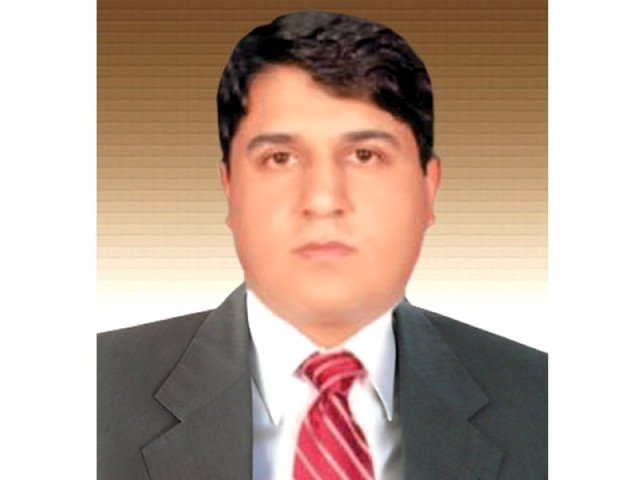Suicide or murder?: New evidence suggests Faisal was taking anti-depressants
Police and hospital sources say NAB official was on medication for over a decade.

Faisal, who held the position of assistant director at the bureau, was found hanging from the ceiling fan in his room at the federal lodge number 2. PHOTO: FILE
Faisal – who was found hanging from the ceiling fan in his room on January 18 – was on anti-depressants and stress-reduction medication for over a decade and his family knew about his condition, revealed a doctor from the Poly Clinic Hospital.
The doctor, who requested anonymity, said that the National Accountability Bureau (NAB) officer had been a regular visitor of the clinic’s psychiatry department since 1999 — almost seven years before even joining NAB in 2006.

“Yes, that is true. He has been a psychiatric patient since 1999,” the doctor said, adding that Faisal was a “sensitive person” and his doctor told his attendant that he could take an “extreme step” at any time in his life. However, the hospital official did not know the name of the attendant and the information could not be independently verified.
Meanwhile, a secretariat police officer told The Express Tribune that Faisal’s roommate at the Federal Lodge 2 (where he was found dead), NAB Assistant Director Sajid Ahmed, has testified that his colleague used to take medication but always tried to hide it.
He told the police that he saw Faisal taking medicines to relax whenever he looked stressed. However, he never shared with his roommate any medical condition that he might have been suffering from.
Ahmed was living with Faisal in his hostel room but had gone on leave a week before his death. Upon his return last week, Sajid was questioned by the police who asked him if he noticed his roommate taking any medicines.
The police found, among other evidence recovered from crime scene, medical records from the Poly Clinic Hospital which showed that Faisal was a regular visitor of its psychiatry department.
He had a prescription for muscle relaxants and anti-depressants signed by a Dr Azra. She was a junior doctor in the psychiatry department headed by Dr Najma Aziz who has already told the police she only checked Faisal once on October 12, 2012 and recommended some tests.
The police officer said he was not certain about Faisal’s visits to the hospital since 1999 but the police have found evidence that he was on certain medication.
One of Faisal’s senior colleagues, who worked alongside him for over six months, told The Express Tribune that he never noticed any abnormal behaviour. “No, I have never come across any abnormal behaviour in him suggesting he could be a psychiatric patient,” said the NAB officer. NAB Spokesperson Zafar Iqbal was not available for comment.
Meanwhile, NAB handed over Faisal’s service record to the Secretariat Police investigating his death which was declared a suicide by the medical board.
The record includes Faisal’s work on cases that he took up since joining the bureau besides his performance in the Rental Power Projects case. “It is the usual service record that departments maintain for their officers. It was requested for record keeping,” said a police officer.
Published in The Express Tribune, January 28th, 2013.



















COMMENTS
Comments are moderated and generally will be posted if they are on-topic and not abusive.
For more information, please see our Comments FAQ